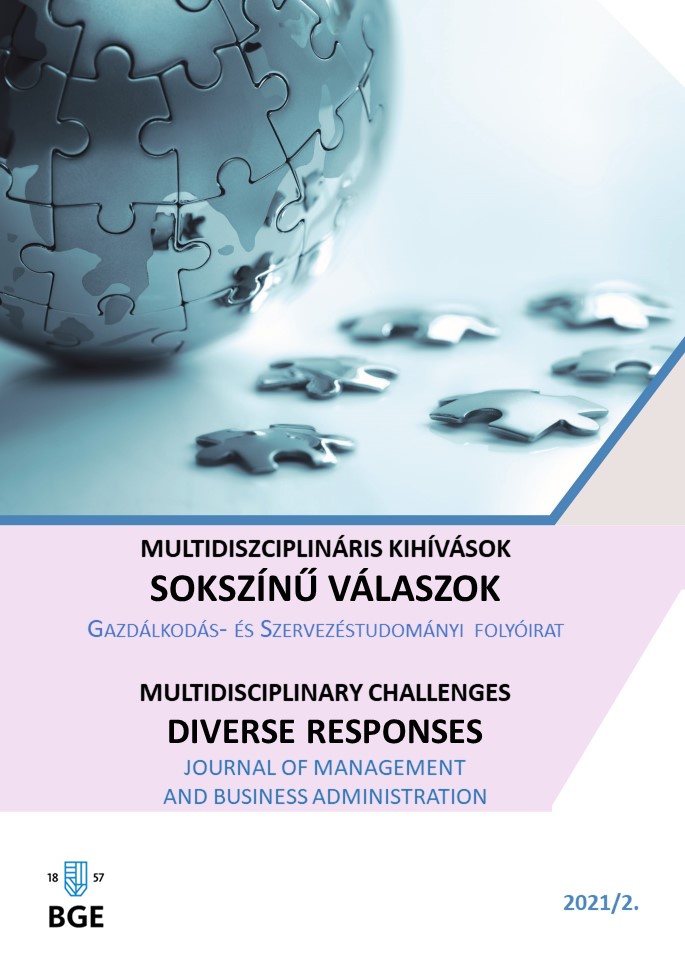Liberális-, VS. regulációs integrációelméletek, azaz konvergencia, vagy divergencia
Absztrakt
A világgazdaság fejlődése a XX. század második felétől minőségileg új szakaszba lépett melynek alapját a globális, és regionális dimenziókban is értelmezhető integrációs folyamatok – azaz a globalizáció, és a regionális integráció – képezik. Vizsgálatuk azonban nem egyszerű feladat, leginkább azért, mert viszonylag új jelenséggel állunk szemben, és mindenki által elfogadott definiálásuk még napjainkban sem zárult le. Nem meglepő tehát, hogy értelmezésüket adó elméletekre leginkább az eklektika jellemző, azaz fogalomrendszerük nem mindig összeegyeztethető nézetek, irányzatok elemeit vegyítik. Jelen tanulmányom célja sem más, mint két egymással szembenálló nézet – a liberális-, és a regulációs iskola – gazdasági fejlettségkülönbségek kiegyenlítő hatására vonatozó prognózisainak (konvergencia/divergencia) statisztikai módszerekkel történő alátámasztása, illetve cáfolása az Európai Unió – és más szabadkereskedelmi egyezmények – regionális integrációs fejlődése során. Amennyiben elfogadjuk dolgozatomban felhasznált adatokat, és alkalmazott módszertant – mint ahogyan azt majd látni fogjuk – a kiválasztott két irányzat e tekintetben közel sem bizonyul annyira ellentmondásosnak, mint amilyennek tűnnek, hiszen rövid, és közép távon a regulációs koncepcióknak megfelelő divergenciát mérhetünk, melyből eredő különbségek azonban hosszú távon a liberális elképzelésekkel egyezően kiegyenlítődnek, konvergálnak az Európia Unió, és további öt vizsgált közösség – így az Észak-amerikai Szabadkereskedelmi Egyezmény, a Dél-amerikai Közös Piac, a Délkelet-ázsiai Nemzetek Szövetsége, az Öböl Menti Együttműködési Tanács, és a Dél-afrikai Vámunió – esetében is.
Hivatkozások
Arató, K. & Koller, B. (2009): Európa utazása – Integrációtörténet. Budapest: Gondolat Kiadó.
Arató, K. (2010): Integráció-elméletetek és az Európai Unió szociális párbeszéde. [online] Elérhető: http://www.kka.hu/_Kozossegi_Adattar/DOKUMENT.Nsf/aeb5e4c08ec7c2ce852566f200140bd7/46413e37b572d823c1256cb7003643cf?OpenDocument (2019.07.06.)
Ausch, S. (1969): A KGST-együttműködés helyzete, mechanizmusa, távlatai. Budapest: Közgazdasági és Jogi Kiadó.
Balassa, B. (1961): The Theory of Economic Integration. Homewood. Illinois: Richard D. Irwin, Inc.
Beck, U. (1997): Was ist Globalisierung? Frankfurt: Suhrkamp.
Benczes, I. (2011): A regionális monetáris integráció néhány elméleti kérdése. In.: Palánkai, T., et al. (2011): A globális és regionális integráció gazdaságtana. Budapest: Akadémiai Kiadó, pp. 174-200.
Bilton, T., et al. (1996): Introductory Sociology. London: Macmillan.
Bóka, É. (2001): Az európai egységgondolat fejlődéstörténete. Budapest: Napvilág Kiadó.
Cleveland, H. (1965): The Evolution of Rising Responsibility. International Organization, 19(3), 828-834. https://doi.org/10.1017/S0020818300012601
Csáki, Gy. (2006): A nemzetközi gazdaságtan és a világgazdaságtan alapjai. Budapest: Napvilág Kiadó.
Csáki, Gy. (2017): Nemzetközi gazdaságtan. Budapest: Napvilág Kiadó.
Csath, M. (2001): Kiút a globalizációs zsákutcából. Budapest: Kairosz Kiadó.
Csath, M. (2019): Bevesszük a kanyart? Tudás – érték – jövő. Budapest: Kairosz Kiadó. https://doi.org/10.14267/retp2019.04.26
Csath, M. (2021a.): What Is Missing from the EU Sustainable Development Report 2020? Aspen Review, [online] 2021(2) Elérhető: https://www.aspen.review/article/2021/missing-eu-sustainable-development-report-2020/ (2021.08.09.)
Csath, M. (2021b.): Fejlődési csapdaveszély a pandémia után. Budapest: Kairosz Kiadó.
Cséfalvay, Z. (2004): Globalizáció 1.0. Budapest: Nemzeti Tankönyvkiadó.
Dollar, D. (2001): Globalization, Inequal, and Povertry since 1980. Washington D.C.: Development Resarch Group, World Bank.
Esze, M., et al. (2009): Integrálódó Európa. Budapest: Perfekt Gazdasági Tanácsadó, Oktató és Kiadó.
Halmai, P. (2014): Krízis és növekedés az Európai Unióban. Európai modell, strukturális reformok. Budapest: Akadémiai Kiadó.
Held, D., et al. (1999): Global Transformations. Politics, Economics and Culture. Acta Sociologica 43(3), 271-273.
Hitiris, T. (1995): Az Európai Unió gazdaságtana. Budapest: Műszaki Könyvkiadó.
Inman, R. P., Rubinfeld, D. L. (1997): Rethinking Federalism. Journal of Economic Perspectives, 11 (4), 43-64.
Inotai, A. (1989): A működő tőke a világgazdaságban. Budapest: Közgazdasági és Jogi Könyvkiadó, Kossuth Könyvkiadó.
Juhász, J., et al., ed. (1992): Magyar értelmező kéziszótár 1. kötet. Budapest: Akadémiai Kiadó.
Kengyel, Á. & Palánkai, T. (2004): A gazdasági integráció fejlődési szakaszai. Az EU-országok makrogazdasági helyzetének alakulása. In: Balhó, A., ed. (2004): Európai integrációs alapismeretek. Budapest: Aula Kiadó, pp. 141-176.
Khoman, T. (1992): ASEAN: Conception and Evolution. In: Thambipillai, P., ed. (1992): The ASEAN Reader. Szingapúr: Institute of Southeast Asian Studies, pp. 17-22.
Kutasi, G. (2011): Regionális integrációk elterjedése a világgazdaságban. In.: Palánkai, T., et al. (2011): A globális és regionális integráció gazdaságtana. Budapest: Akadémiai Kiadó, pp. 41-48.
Losoncz, M. (2011): Az Európai Unió Rómától Budapestig. Tatabánya: Tri-Mester.
Maddison, A. (2003): The World Economy: Historical Statistic. Paris: OECD Development Centre.
Mészáros, Á. (2007): Regionális integrációk a világgazdaságban. In: Blahó, A., et al. (2007): Világgazdaságtan. Budapest: Akadémiai Kiadó, pp. 251-279.
Myrdal, G. (1972): Értékek a társadalomtudományokban. Budapest: Közgazdasági és Jogi Könyvkiadó.
Palánkai, T. (2002): Az integrációs folyamatok általános elméletikeretei. In: Balhó, A., ed. (2002): Világgazdaságan II. Budapest: Aula Kiadó, pp. 353-355.
Palánkai, T. (2004): Az európai integráció gazdaságtana. Budapest: Aula Kiadó.
Palánkai, T., et al. (2011): A globális és regionális integráció gazdaságtana. Budapest: Akadémiai Kiadó.
Pintér, T. (2017): Az európai integráció – gazdasági és politikai alapú elméleti megközelítések. Polgári Szemle, 13(4-6), 341-364. https://doi.org/10.24307/psz.2017.1225
Puchala, D. J. (1972): Of Blind Men, Elephants and European Integration. Journal of Common Market Studies, 10(3) 267-286. https://doi.org/10.1111/j.1468-5965.1972.tb00903.x
Ravenhill, J. & Bernard, M. (1995): Beyond product cycles and flying geese: regionalization, hierarchy, and the industrialization of East Asia. World Politics, 47(2), 171-209. https://doi.org/10.1017/s0043887100016075
Rosamond, B. (2000): Theories of European Integration. London: Macmillan Press.
Simai, M. (1994): The future of global governance. Washington D.C.: United States Institute of Peace Press.
Simai, M. (2000): A globalizáció főbb tendenciái és kérdőjelei a XX. század végén. Tudományos közlemények, 2000(1), 9-18.
Szabó, B. (2020): A technikai-, és az információtechnológia fejlődés globális integrációban betöltött szerepe, és az állami szerepvállalással való közvetett kapcsolata. In: Csaba, Z. & Szabó, A., ed. (2020): Közös kihívások – egykor és most. Budapest: Magyar Rendészettudományi Társaság Vám- és Pénzügyőri Tagozat, pp. 229-242. https://doi.org/10.37372/mrttvpt.2020.1.12
Szijártó, N. (2018): Az optimális valutaövezet elméletek és a Gazdasági és Monetáris Unió működése. [egyetemi doktori disszertáció] Budapest: Nemzetközi Kapcsolatok Doktori Iskola, Budapesti Corvinus Egyetem, Elérhető: http://phd.lib.uni- corvinus.hu/1049/1/Szijarto_Norbert_dhu.pdf (2020.04.21) https://doi.org/10.14267/phd.2019017
Tóth, J., ed.. (2010): Világföldrajz. Budapest: Akadémiai Kiadó. [e-kiadvány, 2016.]
Világbank (2020): Data Bank – World Development Indicators. [online] Elérhető: https://databank.worldbank.org/source/world-development-indicators# (2020.10.06.)
Wisniewski, A. (2008): A gazdasági és monetáris uniós csatlakozás makrogazdasági feltételrendszerének vizsgálata a négy visegrádi ország példáján keresztül. [egyetemi doktori disszertáció] Budapest: Nemzetközi Kapcsolatok Multidiszciplináris Doktori Iskola, Budapesti Corcvinus Egyetem, Elérhető: http://phd.lib.uni-corvinus.hu/376/1/wisniewski_anna.pdf (2020.04.12.)
Wolf, M. (2005): Why Globalization Works. New Haven: Yale University Press. https://doi.org/10.2307/40204315


























